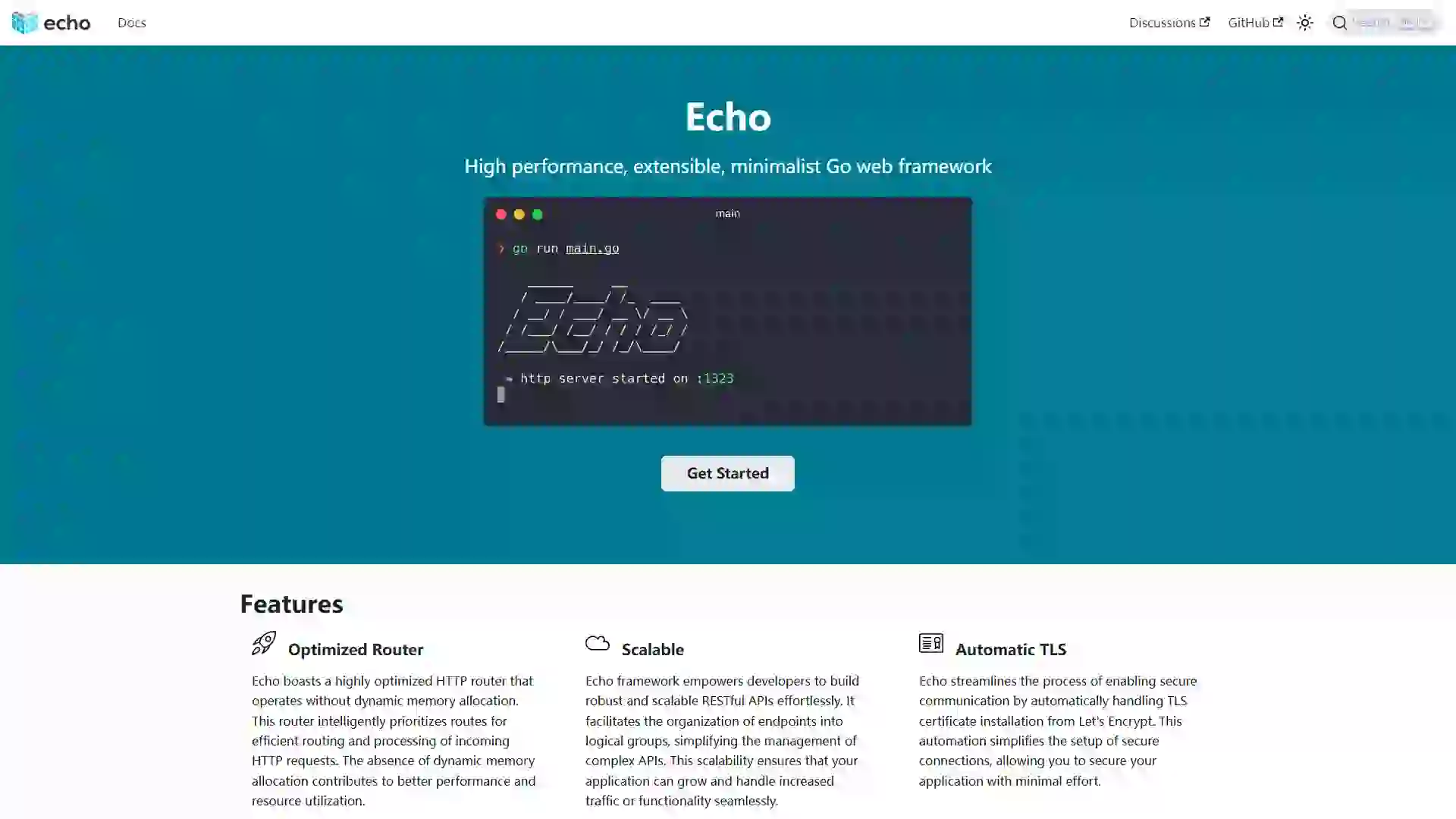Echo
Summary
Echo is a high-performance web framework based on the Go language, specifically designed for building RESTful APIs and microservices. It is renowned for its simplicity, ease of use, and high performance, making it an excellent choice for developers to quickly build efficient web applications.
Features
- High Performance: Built on Go, Echo offers exceptional performance, capable of handling a large number of concurrent requests, making it suitable for high-load scenarios.
- Simplicity and Ease of Use: With a clean API design, developers can quickly get started and build complex web applications.
- Powerful Routing: Supports flexible routing configurations, making it easy to handle various HTTP requests.
- Middleware Support: Comes with a rich set of built-in middleware, allowing developers to extend functionality such as logging, authentication, and more.
Use Cases
- Building RESTful APIs: Echo is an ideal choice for building RESTful APIs, enabling rapid development and deployment of APIs.
- Microservices Architecture: Due to its high performance and lightweight nature, Echo is well-suited for building microservices architectures.
- Real-time Applications: Suitable for real-time applications requiring high concurrency and low latency, such as chat applications and real-time data streaming.
Drawbacks
- Smaller Ecosystem: Compared to other mature web frameworks, Echo has a relatively smaller ecosystem and community support.
- Learning Curve: For developers unfamiliar with Go, there may be a learning curve involved.

Echo
High-performance Go-based web framework for APIs & microservices | Simple, fast, with powerful routing
Share